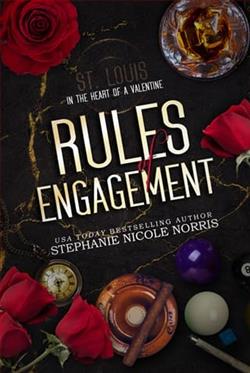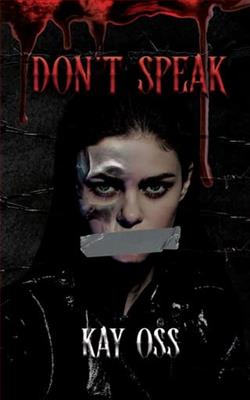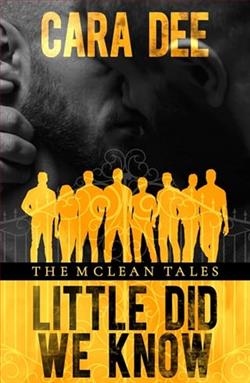Page 162 of Secrets Beneath the Waves
THE PARISIAN ASSIGNMENT
LISA HARRIS
CHAPTER
ONE
Paris, France
The art of counterintelligence is,at its very core, a psychological game of chess. Every move is strategically calculated to outmaneuver the opponent. It’s a strategy of taking pieces of a puzzle and reorganizing them until they make sense, while at the same time discerning what is irrelevant and needs to be discarded. A spy’s secret edge, though, lies in the ability to be forgettable—because in my world, invisibility is power.
Today, I’m crossing the River Seine on the Pont Neuf bridge dressed in dark jeans, a simple white blouse, and a hooded black coat. The bridge is full of tourists looking for the perfect selfie spot and a few locals going about their daily business. For many people, Paris is the perfect travel destination. Museums filled with world-famous art, and iconic landmarks like the Eiffel Tower, the Louvre, and Notre-Dame Cathedral. It’s that magicalje ne sais quoithat blends beauty, history, fashion, and food into the perfect moments.
But while I learned to appreciate culture and travel as a young girl growing up with my Russian-born mom and French father, I’m not here to enjoy the scenery.
Summer is typically the busiest time of year, but there are several winter festivals going on nearby, and tourists have flooded the area. They carry backpacks and pose for photos on the historical stone bridge with stunning views of the river. Couples take selfies with the iconic Eiffel tower in the distance. None of them have any idea that two CIA officers are about to meet one of their assets on the historic bridge.
“What exactly did Polina say?” William asks.
I glance at my partner. He’s six foot three, blond with Scandinavian features, and extremely intelligent. Like me, he grew up in an expat family, thanks to his diplomatic parents. After graduating from university with a degree in cyber security, he shifted course and applied for the CIA. We first met a year ago during a covert op in Istanbul. I’ve always been strongly opposed to mixing my job with my personal life, but from the very beginning, William made me want to change my mind.
“She didn’t want to talk over the phone,” I tell him. “I don’t have details, but something spooked her.”
He’s handsome, funny, and intelligent, and while he has a serious side, he can also be extroverted when the situation calls for it. Like me, he loves to travel, is always up to trying anything new, and knows how to blend in when needed. I’m more focused and detail-oriented than he is, with a strong aptitude for languages, but we’ve discovered that together, our skill set is the perfect combination.
Most of my family back home think I’m a translator living the good life abroad, and would be thrilled to see me settle down. What they don’t know is that not only does William also work for the CIA, he’s a security officer. His job is literally to keep me—and the rest of my team—safe.
Today, I’m counting on him to keep my asset safe as well.
I start searching the crowd for Polina, concerned that something has gone wrong. She’s what we call a walk-in, apotential asset who literally walked into the US Embassy, offered information, and then had been handed to me. Over the past few months, she’s proven herself loyal time and time again, feeding us intel she’s gleaned as a political speechwriter for a number of high-ranking Russian politicians. She’s in a position to acquire sensitive information from sources in the Kremlin that only someone in her position would have access to. Her motivation, though, is extremely personal. Six months ago, her husband, a political activist, was assassinated. Now she works with the CIA, seeking justice for her husband’s murder.
She’s waiting for us on the bridge on the side closest to the Right Bank, exactly where she’d told me she’d be, dressed in a down coat and a scarf around her neck to combat the dropping temperatures. This January has been colder than normal, and even in my jacket and boots, I can feel the wind seeping through my clothes.
“What’s going on, Polina?” I ask, stepping up next to her with William. A river cruise boat glides beneath us, its passengers snapping photos.
“I think I might have been compromised,” she answers in her heavy Russian accent, not looking at me.
“Were you followed?” I ask.
“I don’t think so.”
I hope she’s right, but I’ve never seen her on edge like this. If someone has found out that she’s passing us information, we’re looking at a serious situation. There are those who would do anything to shut off that flow of information and wouldn’t hesitate to take down anyone involved in the process.
“I’m leaving Paris,” she says, scanning the bustling bridge and tracking each person who walks by.
“If you believe your life is in danger and you need extra security, we can help you,” I say.
“I need to do this myself. In fact, I probably shouldn’t even be here now. I think they know what I’ve been doing.”
“Who’sthey?” William asks.
“Whoever killed my husband.” She pulls something out of her pocket. “I received a threat.”
“You’ve gotten threats before, because of your job,” I say, not particularly surprised.
“This is different. I don’t think it’s connected to what I do. This. . .this is personal.” She hands me what she’s pulled out of her pocket. “Someone sent me David’s watch.”
“You’re sure this is his?” I ask.















